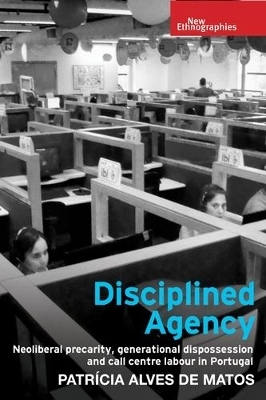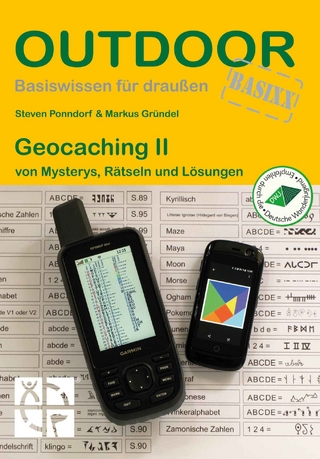
Disciplined Agency
Neoliberal Precarity, Generational Dispossession and Call Centre Labour in Portugal
Seiten
2020
Manchester University Press (Verlag)
978-1-5261-3498-1 (ISBN)
Manchester University Press (Verlag)
978-1-5261-3498-1 (ISBN)
This book introduces the concept of disciplined agency as a valuable explanatory tool vis-a-vis new forms of labour exploitation in service realms of production and the material and moral insecurities of capitalism under neoliberal governance. -- .
Since the mid-2000s, the harsh reality of call centre employment for a generation of young workers in Portugal has been impossible to ignore. With its endless rows of small cubicles, where human agents endure repetitive telephone conversations with abusive clients under invasive modes of technological surveillance, discipline and control, call centre work remains a striking symbol of labour precarity, a condition particularly associated with the neoliberal generational disenchantment that ‘each generation does better than its predecessor’.
This book describes the emergence of a regime of disciplined agency in the Portuguese call centre sector. Examining the ascendancy of call centres as icons of precarity in contemporary Portugal, this book argues that call centre labour constitutes a new form of commodification of the labouring subject. De Matos argues that call centres represent an advanced system of non-manual labour power exploitation, due to the underestimation of human creativity that lies at the centre of the regimented structures of call centre labour. Call centres can only guarantee profit maintenance, de Matos argues, through the commodification of the human agency arising from the operators’ moral, relational and social embedded agentive linguistic interventions of creative improvisation, decision-making, problem-solving and ethical evaluation. -- .
Since the mid-2000s, the harsh reality of call centre employment for a generation of young workers in Portugal has been impossible to ignore. With its endless rows of small cubicles, where human agents endure repetitive telephone conversations with abusive clients under invasive modes of technological surveillance, discipline and control, call centre work remains a striking symbol of labour precarity, a condition particularly associated with the neoliberal generational disenchantment that ‘each generation does better than its predecessor’.
This book describes the emergence of a regime of disciplined agency in the Portuguese call centre sector. Examining the ascendancy of call centres as icons of precarity in contemporary Portugal, this book argues that call centre labour constitutes a new form of commodification of the labouring subject. De Matos argues that call centres represent an advanced system of non-manual labour power exploitation, due to the underestimation of human creativity that lies at the centre of the regimented structures of call centre labour. Call centres can only guarantee profit maintenance, de Matos argues, through the commodification of the human agency arising from the operators’ moral, relational and social embedded agentive linguistic interventions of creative improvisation, decision-making, problem-solving and ethical evaluation. -- .
Patrícia Alves de Matos is a Research Fellow at the Centre for Research in Anthropology, Instituto Universitário de Lisboa (ISCTE-IUL), Lisboa, Portugal -- .
Series editor's foreword
1 Introduction
2 Capitalist and generational transitions in contemporary Portugal
3 Call centres as icons of precarity: between emancipation and stigma
4 The moral economy of labourer production in call centres
5 Clients: operationalising consensus, internalising discipline
6 The production of agency: humans disguised as robots
7 The dispossessed precariat
8 Conclusion
References
Index
Conclusion
Index -- .
| Erscheinungsdatum | 10.05.2021 |
|---|---|
| Reihe/Serie | New Ethnographies |
| Zusatzinfo | 8 black & white illustrations; 4 tables |
| Verlagsort | Manchester |
| Sprache | englisch |
| Maße | 156 x 234 mm |
| Themenwelt | Naturwissenschaften ► Geowissenschaften ► Geografie / Kartografie |
| Sozialwissenschaften ► Ethnologie | |
| Sozialwissenschaften ► Politik / Verwaltung ► Politische Theorie | |
| Sozialwissenschaften ► Soziologie ► Mikrosoziologie | |
| ISBN-10 | 1-5261-3498-5 / 1526134985 |
| ISBN-13 | 978-1-5261-3498-1 / 9781526134981 |
| Zustand | Neuware |
| Haben Sie eine Frage zum Produkt? |
Mehr entdecken
aus dem Bereich
aus dem Bereich
über eine faszinierende Welt zwischen Wasser und Land und warum sie …
Buch | Hardcover (2023)
dtv (Verlag)
CHF 33,55
von Mysterys, Rätseln und Lösungen
Buch | Softcover (2024)
Conrad Stein (Verlag)
CHF 16,90


